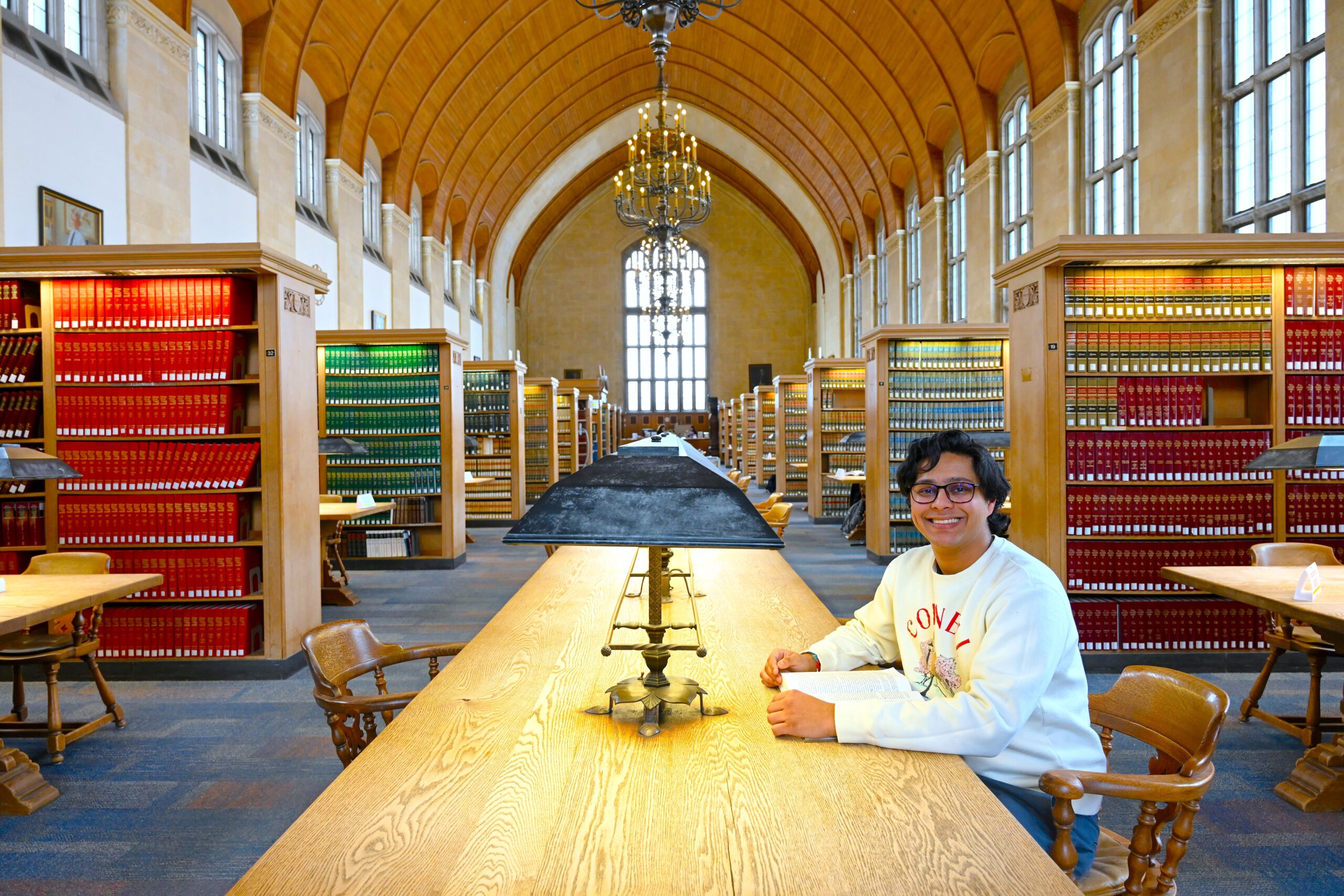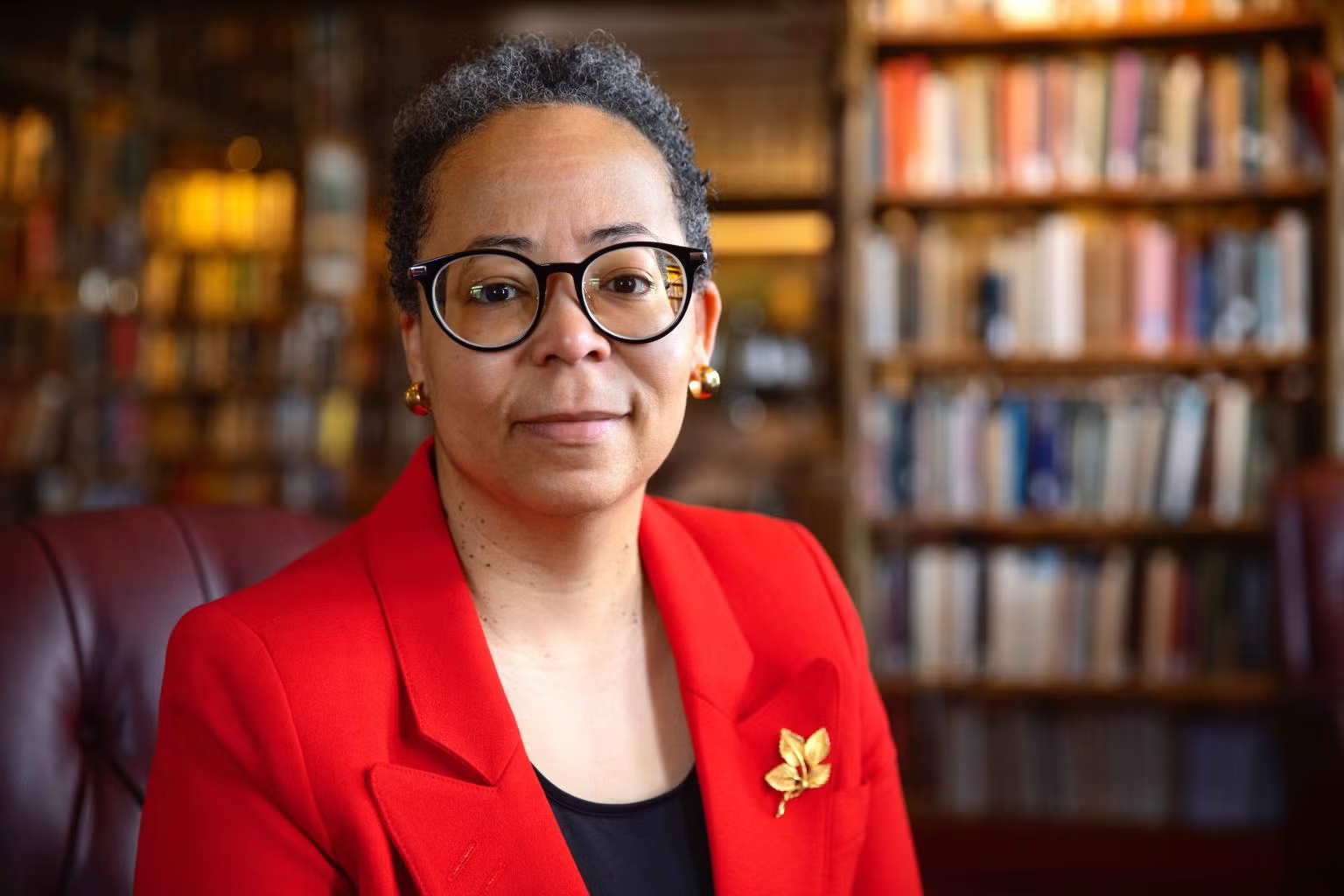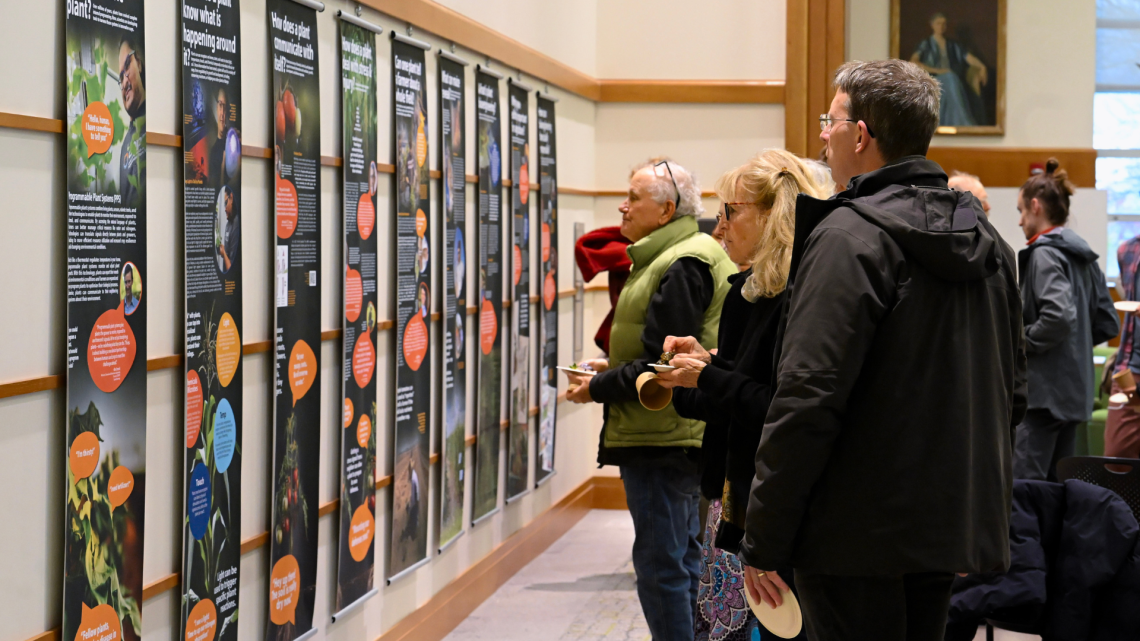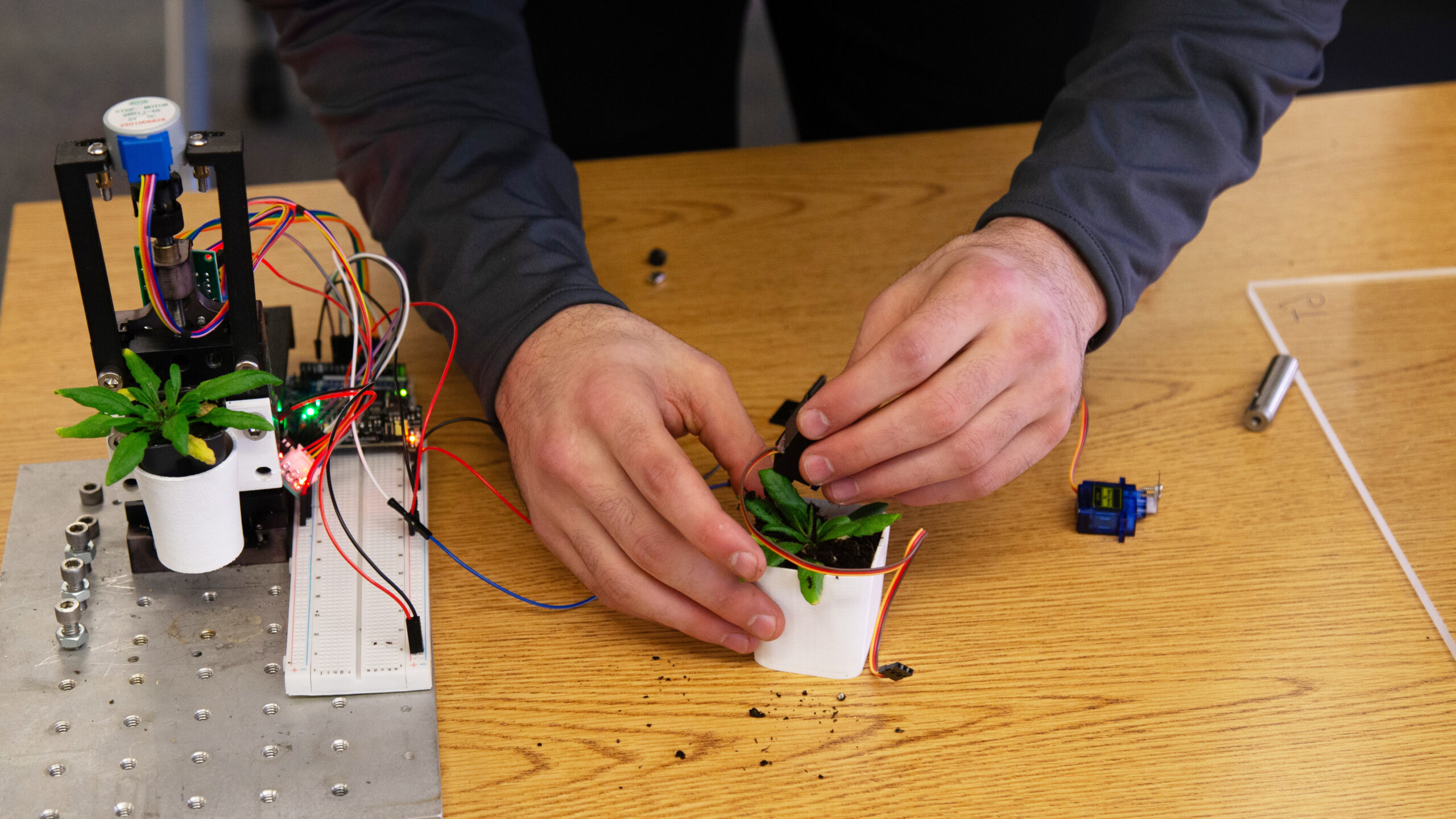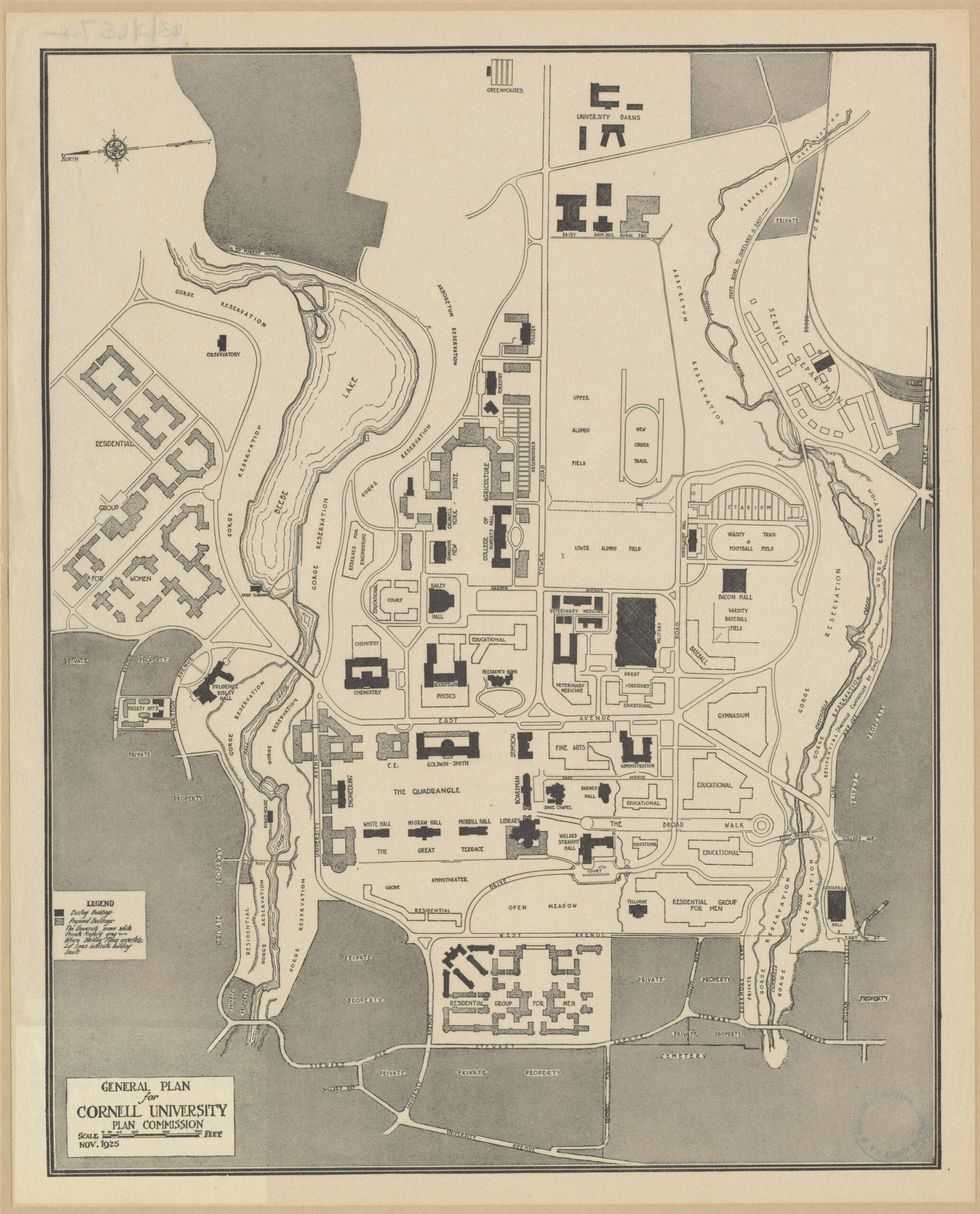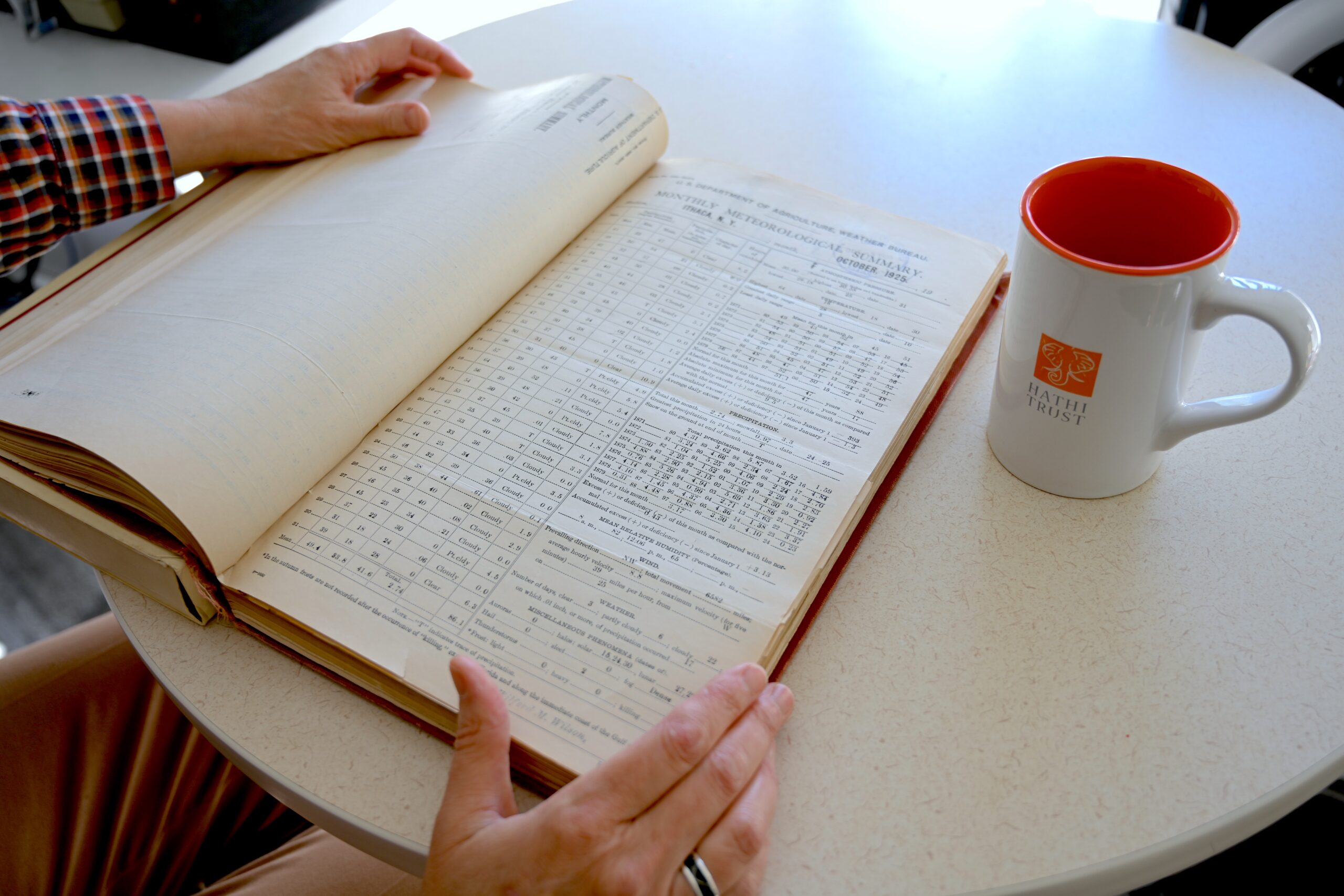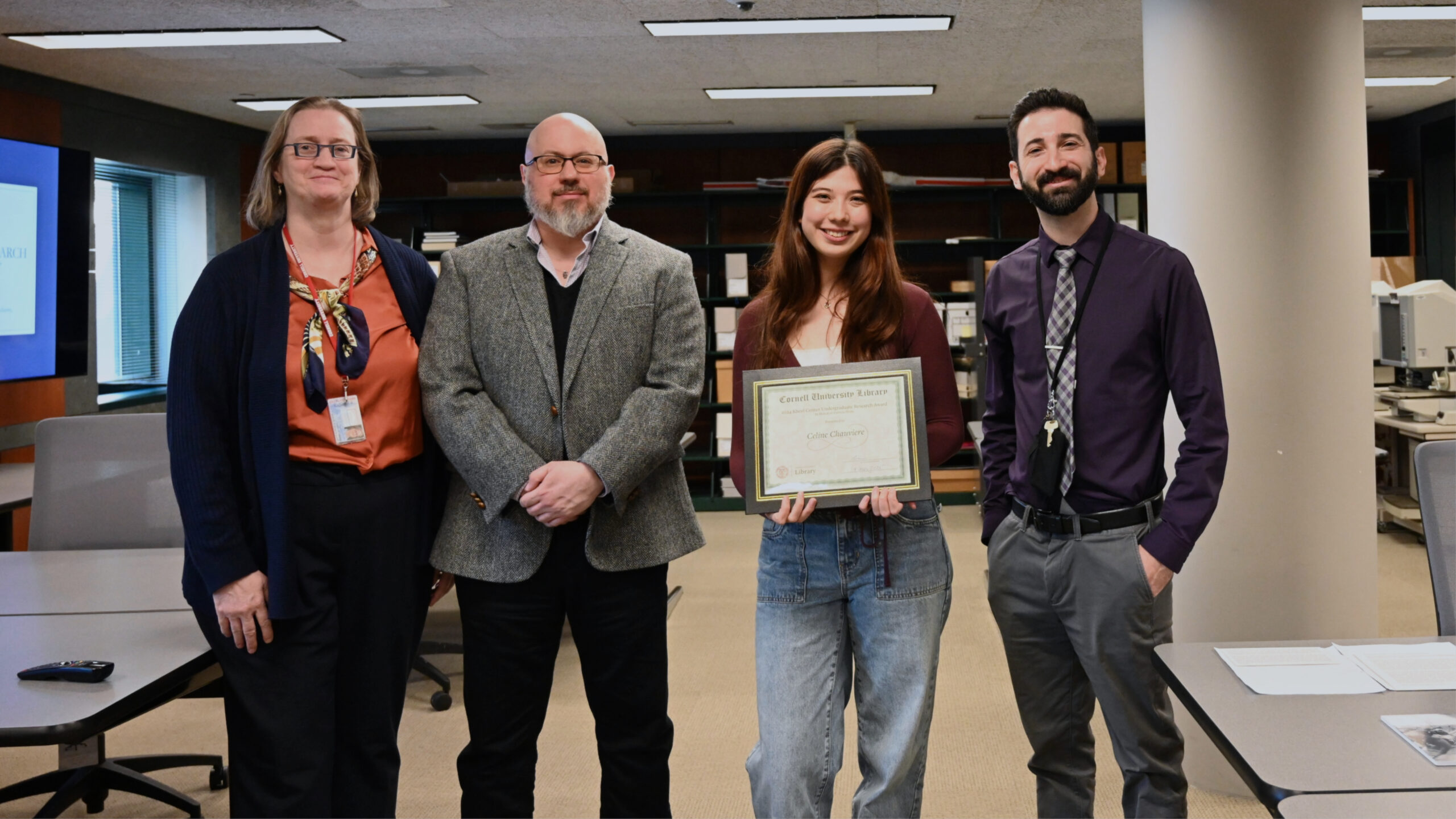
Rosie the Riveter—the image of a bicep-flexing, young white woman who came to symbolize the empowerment of American women factory workers during WWII—sparked the curiosity of ILR student Celine Chauviere ’26 as she started her research paper for a labor history class. But, as Chauviere dug deep in the Kheel Center for Labor-Management Documentation and Archives of the Martin P. Catherwood Library, she was drawn to the voices of women who didn’t fit the Rosie stereotype: Black women industrial workers who faced racial and gender discrimination during the 1940s.
Chauviere’s paper “Rosie the Riveter’s Untold Story: African American Women’s Intersectional Struggle” earned her the 2024 Kheel Center Award for Undergraduate Research, which celebrates outstanding scholarship using the center’s archives.
The Kheel Center—which, along with Catherwood Library, is a vital part of Cornell University Library—provided an “engaging experience,” Chauviere said.
“The Kheel Center’s archives were absolutely essential in shaping my research topic,” she said. “I initially had a broad interest in writing about Rosie the Riveter, but it was only after exploring the center’s collection of interviews with women who worked during WWII that I became intrigued by the specific experiences of African American women in the workforce—stories often overlooked in conventional narratives.”
Known for its historical, primary-source materials related to American industrial and labor relations, worker’s unions, and management theory, the Kheel Center is a “dynamic resource across both research and teaching,” said Chauviere’s professor Tejasvi Nagaraja, assistant professor of labor history at Cornell’s ILR School.
“We are fortunate to have the Kheel Center’s expert and caring staff, and expansive and singular collections, here at Cornell and ILR,” he said.
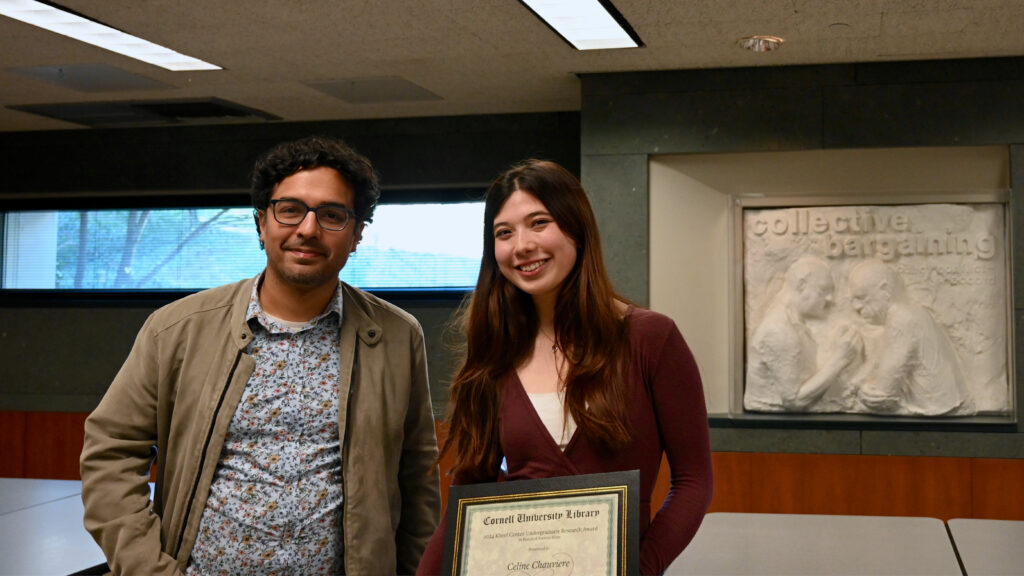
With resources at Kheel, Nagaraja is currently writing a book on how American WWII foreign policy reflected domestic issues of racism and class inequity. “As a labor historian, I’ve used its collections for my own research scholarship,” he said.
Since 2016, the Kheel Center has been sponsoring the undergraduate research award, which comes with a $500 cash prize, with the goal of helping students understand the importance of primary sources for scholarship.
The award and the Kheel Center’s resources continue to inspire Chauviere.
“In my academic and personal pursuits, I always seek to discover people’s life stories and lived experiences—something this research allowed me to do firsthand,” she said. “This award has also motivated me to explore new research topics, particularly as I begin planning my senior honors thesis on the impact of in-truck monitoring technology on last-mile delivery workers, a project that I will work on throughout next year.”
May 29 is the deadline for applications for the 2025 Kheel Center Undergraduate Research Award. Apart from research papers that drew from Kheel Center materials, submissions of creative and scholarly works involving other archives at Cornell will also be considered.
“We invite all undergraduate students to apply for the research award for any student pursuing original research for their classes in any archive on campus, including the Kheel Center, the Rare and Manuscripts Collection, and the Cornell Fashion Collection,” said Steven Calco, Kheel’s interim assistant director.
“We encourage typical historical research papers but also acknowledge the creativity that can come out of archival research and therefore include exhibits, podcasts, theatrical productions, and more,” Calco said.
“Celine’s research is stellar, and we’re thrilled to be in a position to honor her work with this award,” said Jim DelRosso, interim director of Catherwood Library. “Year after year, the work of our award winners demonstrates that great research happens when undergraduate students engage with archives and special collections.”
Learn more about how to apply for the Kheel Undergraduate Research Award.
